Strange Angel (24 page)
Authors: George Pendle
Â
Parsons was also making occasional visits to the recently renamed Los Angeles Science Fiction Society (LASFS). Science fiction was becoming increasingly mainstream. There were now around twenty magazines in print devoted to science fictionâincluding
Comet Stories, Captain Future,
and
Dynamic Science Stories
âand the quality of writing, which had previously been hit or miss, was improving dramatically. Indeed, John W. Campbell, who had just taken the helm of the magazine
Astounding Science Fiction,
was about to guide science fiction into what many would call its Golden Age. When Parsons heard that one of his favorite writers, Jack Williamson, was due to visit the Los Angeles science fiction group, he wrote Williamson a letter, mentioning that he had been inspired by the rocket design in the writer's story, “Crucible of Power.” Williamson, intrigued by Parsons' scientific credentials, agreed to meet with him.
Parsons had a particular interest in one of Williamson's stories that had recently appeared in the fantasy magazine
Unknown.
Called “Darker Than You Think,” it presented itself as a found manuscript that told the tale of a newspaper reporter named Will Barbee. Barbee finds himself attracted to a mysterious girl with flame-red hair who calls herself a witch. It slowly emerges that this girl is part of an ancient underground cult of witches that is “awaiting the appearance of an expected leader” known as “the Black Messiah.” The witches have long been kept secret from mankind by a vast, hidden conspiracy: “The witches in university laboratories can prove there are no witches. The witches who publish papers can make a fool of one who says there are.” Barbee begins to have “dreams” of transforming himself into a great beast and being ridden through the countryside by his red-haired seductress, and he slowly becomes aware that he himself is a witchâin fact he might well be the Black Messiah. Eventually accepting his role, he saves the witches from discovery and eagerly joins the cult. The story's description of a scarlet-haired woman riding a great beast recalled Crowley's own personal mythology, and the tale of Will Barbee seems to have captured Parsons' imagination because it resonated with his own awakening fervor for the OTO.
Jack Williamson had majored in chemistry before taking up writing full-time. Lean, bespectacled, slightly hunched over, he was, at the age of thirty-two, the elder statesman of the genre. He found Parsons “an odd enigma” and was fascinated by his “unexpected” interest in occult ideas. “I don't remember much talk about the occult. He was I think rather reserved about his interest in it, at least with skeptics.” Williamson had written “Darker Than You Think” as a study of his own inner conflicts as he grappled with them under psychoanalysis, and he hadn't the slightest interest in real-life cults. Nevertheless, there was something about Parsons that intrigued him: The occultist-rocket scientist could have been a character from one of his own stories. Following their meeting, Parsons invited Williamson and another science fiction writer, Cleve Cartmill, to pay a visit to the house on Winona Boulevard and attend the mass. The two writers were underwhelmed by their visit. “The ritual was disappointingly tame. There was no nude virgin on the altar. Satan was not invoked,” remembered Williamson.
One LASFS member who was attracted to the ceremony for more than laughs or research purposes was Grady McMurtry, a senior at Pasadena City College. He had become somewhat enamored of Parsons through his appearances at the LASFS meetings at Clifton's Cafeteria. Parsons was older, better read, and had an unquestionable charisma, and McMurtry remembered being particularly impressed by the “fancy Russian cigarettes” Parsons smoked, little knowing that a few months earlier all the rocketeer could afford were scrounged dog-ends.
Parsons proceeded to act as a mentor of sorts to the young McMurtry, introducing him to ancient mythology and Frazer's
The Golden Bough.
McMurtry wrote poetry, and Parsons, whose own verse output was increasing as he read more of Crowley's work, offered to lend him some guidance. Soon McMurtry was being invited back to Parsons' house to listen to Parsons' favorite music, Stravinsky's
The Rite of Spring,
and for post-LASFS drinking sessions alongside the visiting Jack Williamson and Ed Forman. “Must have drank a quart and a half of beer,” wrote McMurtry after one particularly heavy session; “talked about rockets, witchcraft, etc.” Betty Northrup, Helen's vivacious sixteen-year-old half-sister, also joined in the discussions. She had recently moved in with Parsons and Helen while she finished high school, presumably in an effort to escape her father. She got along well with Parsons; the two would discuss various ideas of books they could write. The pair would often go on long walks in the nearby mountains along with Helen and McMurtry, and Parsons would smoke his pipe and talk of nothing but poetry.
Â
On February 15, 1941, Jack and Helen Parsons were finally initiated into the Agape Lodge of the OTO. Parsons took as his motto, “Thelema Obtentum Procedero Amoris Nuptiae.” In a testament to his less-than-perfect school days, it was horribly incorrect Latin, but the general meaning seemed to be, “The establishment of Thelema through the rituals of love.” Transliterated into the Cabbala, the initials of his motto gave him the magical number of 210, with which Parsons would take to signing all his official OTO correspondence.
A delighted Wilfred Smith wrote Crowley, “I think I have at last a really excellent man, John Parsons. He has an excellent mind and much better intellect than myself ... JP is going to be very valuable.” Parsons' value was not least to Smith himself, for his initiation came at a particularly testing time for the head of Agape Lodge. One of the OTO's members, the jeweler and astrologer Max Schneider, strongly disapproved of Smith and was jealous of his position as the chief of the OTO in California. He wrote letters to Crowley claiming that Smith was abusing his position by prostituting some of the OTO's members, and he made the far more serious accusation that Smith was embezzling money destined for Crowley himself. Parsons was soon to discover that bad-mouthing fellow OTO members was an addictive habit for the inhabitants of Agape Lodge. It was a habit that Crowley also enjoyed, playing his disciples off against one another in order to test their loyalty. Schneider's charges appear to have been groundless, but Smith was grateful that he could trumpet an accomplishment: Parsons could not only increase membership of the Lodge but also get Smith back into Crowley's favor. Other members of the OTO thought Parsons might be a blessing for the stagnant order. Jane Wolfe wrote excitedly to Crowley's second-in-command, Karl Germer, an expatriate German in New York who as treasurer was in charge of collecting the OTO's donations and fees. She had pinned her hopes on the new initiate, writing, “This year there is more hope, as we have an A1 man joined up, Crowleyesque in attainment as a matter of fact.”
From the start, Parsons displayed a great desire to involve himself with the OTO. He ambitiously declared that he would begin a course of talks at his house in Pasadena in order to enlarge the group's membership and to find new “prospects” among his friends. Soon he persuaded Helen's half-sister Betty and his science fiction friend Grady McMurtry to join. But his fervent planning and boosting for the OTO meant that he was not seeing as much of the rocket group socially as he had before. Noticeably he was absent from the parties Kármán and his sister Pipö gave at their house. When it was remarked to Kármán that Parsons hadn't been attending because he had become involved in a strange cult, Kármán simply laughed as Malina had. “Oh Jack,” he said, amused. “He's just a little crazy, don't pay attention to him.”
It had taken almost two years from his first visit to the mass for Parsons to become a fully paid-up member of the OTO. The long hours spent working on the rockets, Helen's initial reluctance to join, and Parsons' own ambivalence regarding Wilfred Smith had all helped delay the process. However, by early 1941 these obstacles had been surmounted: The rocket work was fully funded, Helen had slowly become fascinated by Crowley's religion (“We met something that was right!” she would recall), and Parsons' hesitancy over Smith had all but disappeared. Indeed, Parsons began to see Smith and the OTO as more than just his guides through the arcane realms of magick. They seemed to offer him something that even the Suicide Squad could not. In a letter to Smith, Parsons made a poignant admission: “You know, I was an only and lonely child, and it is a fine thing to inherit such a large and splendid family. I never knew a father, and it is nice to have one now.”
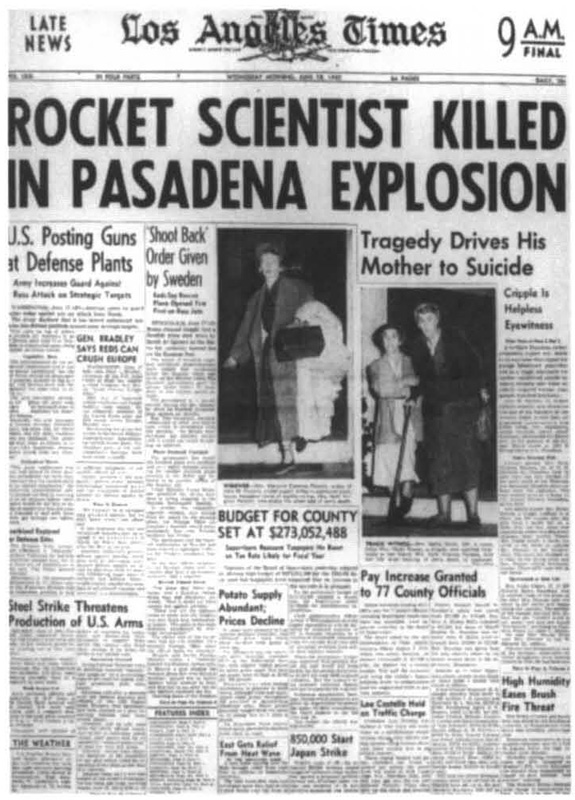
Los Angeles Times
leads with the news of Parsons' death.
Courtesy of the
Los Angeles Times
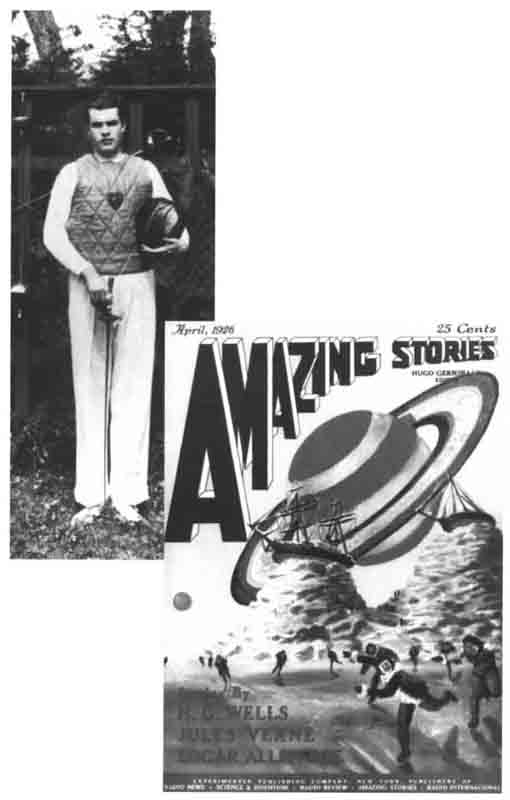
Warburg Institute
(Bottom-right)
Amazing Stories
#1, “the magazine of scientifiction.”
Reprinted by permission of the agent for the estate of Frank R. Paul
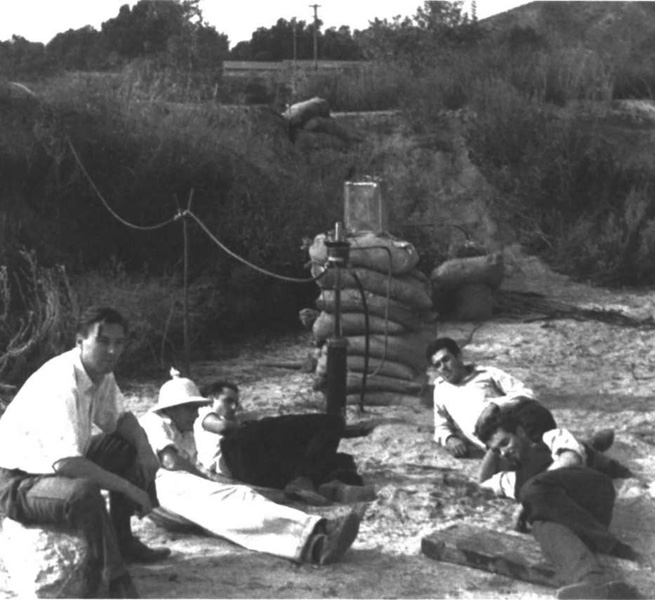
Courtesy NASA/JPL-Caltech
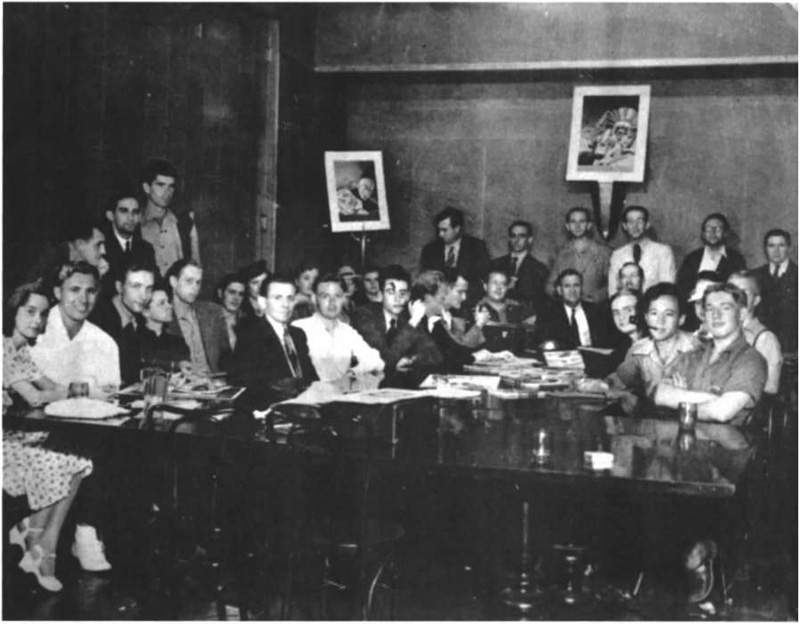
Los Angeles Science Fantasy Society, Inc.
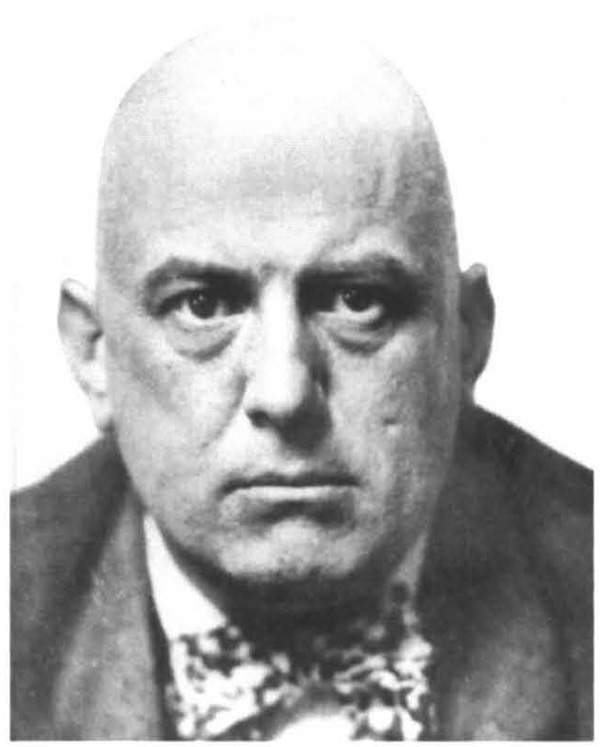
Warburg Institute